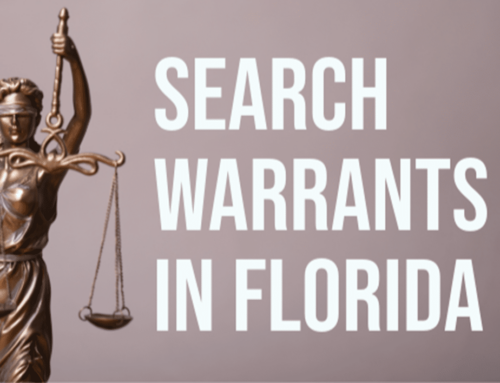The criminal justice system uses a lot of terminology and jargon that may be difficult for non-lawyers to understand. If you’ve been charged with a crime, you need to make sure you understand everything you’re being told and all the possible outcomes of your case. Just what does “acquitted” mean in court? In this article, we will define acquittal, discuss how a defendant gets acquitted, and determine what it means when you are acquitted.
When a person is acquitted in court, it means that a judge or jury rules that the prosecutor did not present enough evidence to prove beyond a reasonable doubt that the defendant committed the crime.
Does Acquitted Mean Not Guilty?
“Acquittal” and “not guilty” are often used interchangeably, although they do not mean the exact same thing. “Not guilty” is when either a judge or jury finds that the prosecutor has not proved the case beyond a reasonable doubt, whereas a judgment of acquittal entered by a judge means that there was not enough proof to convict you in court. So being found not guilty is one form of an acquittal, but there are other ways of being acquitted besides a not guilty verdict.
How Do You Get Acquitted in Criminal Cases?
As mentioned above, the most common form of acquittal is for a judge or jury to find you not guilty in a trial. For that to happen, your criminal defense attorney will need to present evidence that casts doubt on your guilt in the crime. They can do this by producing evidence that shows someone else could have committed the crime or by questioning the validity of the evidence the prosecution presents. If your attorney can create reasonable doubt that you committed the crime, a judge or jury is required to acquit.
Being found not guilty is one reason for an acquittal, but as mentioned above, there are other ways for a defendant to be acquitted. Another example is if an appeals court determines that there is not enough evidence for a case to proceed. This isn’t the same as a not guilty verdict, but the result is the same: an acquittal, and the defendant is set free.
What Does it Mean When You Are Acquitted?
Once you have been acquitted by a judge or jury, you are free from any obligation to the court. Prosecutors can not appeal an acquittal. In addition, once you have been acquitted, “double jeopardy” is applied, meaning you can not be tried again for the same crime.
“Not Guilty” Does Not Equal “Innocent”
An important distinction is understanding that being found not guilty is not the same as being innocent. A not guilty verdict just means that the judge or jury believes that the prosecutor failed to prove the defendant was guilty “beyond a reasonable doubt.”
Is an Acquittal the Same as a Dismissal?
In criminal law, an acquittal is not the same thing as a dismissal. A dismissal happens earlier in the process, usually before the case goes to trial. Prosecutors can move for dismissal if they believe there is not enough evidence to support the charges. Also, a judge can dismiss the case if they feel there is no legal reason to proceed with the case. A criminal defense attorney can petition the judge to dismiss the case if:
- The defendant was arrested without probable cause.
- The prosecutor made specific mistakes in the criminal complaint or charging documents.
- Police conducted an unlawful search and seizure.
- There is insufficient evidence to support the charges in the case.
Partial Acquittal
If you are charged with multiple crimes, another possible outcome is a partial acquittal. For example, if you are charged with domestic violence and manslaughter, you may be found guilty of the domestic violence charges, but acquitted of manslaughter.
Let The Edelstein Firm Help You Navigate the Legal System
Now that you understand how to be acquitted and some important legal terms, you may need to speak with a qualified attorney. Whether you are facing federal charges or state charges, you need a criminal defense lawyer who understands the complexities of your local laws. If you or a loved one needs assistance navigating the criminal justice system in the Miami area, contact The Edelstein Firm today.








